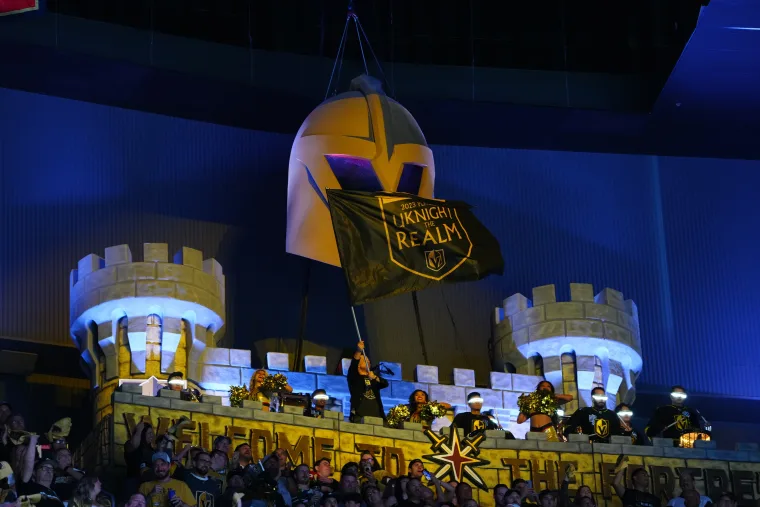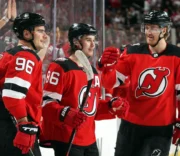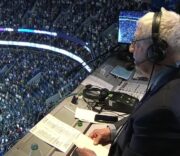
The NHL is abuzz with talks of expansion, and while the league currently boasts a well-rounded 32-team structure, whispers of adding more franchises are growing louder. The recent successes of the Vegas Golden Knights and the Seattle Kraken have reignited the allure of expansion, leading to discussions about potential new destinations for NHL hockey.
Expansion has been a game-changer for the NHL in recent years. The Vegas Golden Knights, in just their inaugural season, clinched the Stanley Cup, leaving an indelible mark on the league. Meanwhile, the Seattle Kraken, in their sophomore year, surprised many by defeating the defending champions, the Colorado Avalanche, in the first round of the playoffs. The excitement surrounding these expansions is palpable, and it has sparked speculation about where the NHL might venture next.
Deputy Commissioner Bill Daly, while cautious about the prospect of expansion, concedes that there is a growing interest in owning NHL franchises across various markets. While the league remains tight-lipped about its future plans, it’s hard to ignore the rumblings within the hockey world.
One intriguing aspect of potential expansion is the geographical scope. To identify promising markets, one must turn their gaze southward. Among the top ten TV markets in the United States, only two lack an NHL presence: Atlanta, ranked sixth, and Houston, seventh. This factor carries significant weight in the world of professional sports.
| City | Market Ranking | Key Factors |
|---|---|---|
| Atlanta | 6th | Strong interest, accessibility, growth potential |
| Houston | 7th | Ownership stability, existing venue, market viability |
One prospective destination that has captured attention is located approximately 30 miles north of Atlanta. It’s here that “The Gathering at South Forsyth” project has taken root. Spearheaded by local car dealership magnate Vernon Krause, this ambitious undertaking encompasses residential units, shops, restaurants, 450 hotel rooms, and a crucial component for the sports world—a state-of-the-art arena capable of accommodating 18,500 passionate fans. The announcement of this project has generated substantial buzz.
Carl Hirsh, the managing partner of Stafford Sports, which represents Vernon Krause’s interests in the project, has a wealth of experience in overseeing arena projects, including several NHL venues. What makes “The Gathering” even more enticing is its self-sufficiency.
HirshWe’re right on Highway 400, which is known as ‘Tech Highway’ in Georgia because that’s where all the young tech companies are moving to.
Additionally, this project is situated in the 16th-wealthiest county in the United States—Forsyth County. The county has experienced remarkable growth over the past decade, which bodes well for the NHL or any potential suitor.
Hirsh emphasizes that the arena’s viability extends beyond just hockey.
HirshWe are building this building because we think it works without hockey. We think it would be fabulous with hockey or any other professional sports, but all our research tells us this can be successful whether or not we ever get a hockey team.
While it’s true that Atlanta has witnessed the departure of two NHL franchises in the past—the Flames in 1980 and the Thrashers in 2011—there are notable distinctions to consider. One key factor was the accessibility of the downtown arena, which deterred fans residing in the northern suburbs due to notorious traffic congestion. Furthermore, the Thrashers’ relocation to Winnipeg stemmed from ownership complications intertwined with the NBA’s Atlanta Hawks. Financial constraints, aggravated by a rift within ownership, led to the sale of the Thrashers to True North Sports and Entertainment, facilitating their move and rebranding as the Winnipeg Jets.

On a different front, Houston has lingered in the spotlight as a potential NHL destination for years. Much of the speculation revolves around Tilman Fertitta, the owner of the NBA’s Houston Rockets. According to insiders, several groups are eyeing the construction of a new arena in the city. However, Fertitta already possesses the Toyota Center, a suitable venue for NHL hockey. While it’s believed Fertitta would prefer to avoid the substantial cost of expansion fees, he is unlikely to welcome other groups encroaching on his Houston territory.
A notable twist in the expansion saga involves the Arizona Coyotes, who are currently facing an uncertain future. A surprising turn of events occurred when the Coyotes lost a municipal vote for a new arena in Tempe, leaving them in a precarious position. Notably, NHLPA executive director Marty Walsh has expressed concern about the players’ current situation, where they compete in the modest 4,600-seat Mullett Arena at Arizona State University. The consensus among many is that this arrangement is far from ideal.
In response to the Coyotes’ predicament, discussions have arisen regarding potential relocation. Utah billionaire Ryan Smith has expressed a keen interest in bringing an NHL team to Salt Lake City. This move would ensure that the Coyotes remain within the same divisional footprint, aligning with the league’s geographical considerations.
As the NHL contemplates its expansion strategy, the urgency to secure a more suitable home for the Coyotes has intensified. The sentiment is clear—NHL players should not have to compete in a college rink, as it neither looks nor feels right.
However, what about Canada, the birthplace of hockey? To the chagrin of many hockey enthusiasts in the nation, it seems that the NHL’s return to Quebec City or the addition of a second team in Toronto is not imminent. NHL Commissioner Gary Bettman suggests that these proposals do not resonate as strongly as other potential markets. Expansion decisions, he emphasizes, hinge on factors such as market appeal, ownership stability, arena infrastructure, and the potential to enhance the league’s overall strength.
Recent expansion success stories in Seattle and Vegas illustrate the NHL’s strategic approach. The league remains confident in its ability to maintain a deep talent pool. Seattle’s GM, Ron Francis, has exemplified this by orchestrating a successful roster-building strategy, capitalizing on cap-strapped teams and making savvy acquisitions in the offseason. Additionally, Seattle has tapped into the waiver wire, optimizing the talents of players who may not have found their place with other teams.
The continued growth of hockey worldwide further bolsters the case for expansion. The unpredictability surrounding the KHL and the potential return of more international players to the NHL contribute to the league’s capacity for further expansion.
While the NHL proceeds cautiously with its expansion endeavors, the allure of exploring new frontiers, particularly in the southern United States and beyond, remains undeniably enticing. The league’s expansion history showcases the potential for success, and as the hockey world eagerly awaits the NHL’s next move, the possibilities are as exciting as ever.






















